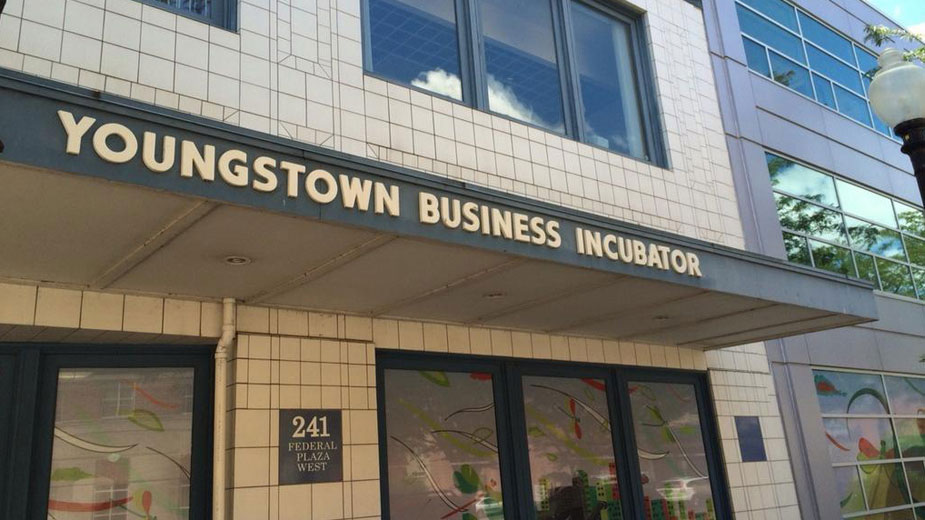YBI Develops Asset Map for Additive Manufacturing
YOUNGSTOWN, Ohio – The dust is flying inside the newest building in the Youngstown Business Incubator campus, and its chief operating officer, Barb Ewing, is equally excited by the activity inside its older buildings.
Inside the former Vindicator Building, an asbestos survey is being conducted and a garage just outside has been razed, its debris carted away. YBI has secured a naming rights partner, its identity expected to be announced this summer for the manufacturing bay in the Vindicator building, Ewing said.
“Now that the project is under construction, we’ll begin the process of promoting that and trying to identify other potential donors to name either the building as a whole or components,” she said. “I have somebody in mind. I hope he has me in mind.”
One project that YBI — working with America Makes, Team NEO and Magnet — has underway is completing an asset map on additive manufacturing.
“As you try to build an economic cluster, you’re looking at the strengths of your region and its capabilities, natural attributes in your economy that gives you a competitive advantage of developing a specific industrial cluster,” she said, “That allows you to also create a vision and a path to get there.”
The asset map, which looks at supply chain development, materials, information technology needs, workforce and customer base, “will help us build programming in the future,” she said. She expects it to be released the second half of July.
The new building, now known as Tech Block 5, will provide additional incubation space as well as space for advanced manufacturing, specifically additive manufacturing. YBI is a partner in, and landlord of, America Makes, the manufacturing hub dedicated to additive manufacturing technologies.
“We’re very excited about the strong position of our portfolio companies on the hardware side,” she said. “When we began building our portfolio, we weren’t sure what to expect, whether companies would come to us because they wanted to manufacture things using additive manufacturing, but a lot of the deal flow that we’re seeing now involves making better pieces of equipment.”
YBI has four companies designing four kinds of desktop 3-D printers, all with different applications and uses. “Some of them are in the markets, some of them are still pre-market but we’re seeing good traction in terms of the sales for the companies that have entered the market,” she said.
Among those companies is 3-D PrinterWorks. The company, launched three years ago, moved into the incubator three months ago, co-founder Ben Kilar said. The printers cost just under $2,800 and to date the company has sold some 160 units. Many are sold in Australia, most to an engineering firm, Asgard Engineering.
The company, which Kilar founded with his father, doesn’t serve a specific market but most of its customers are engineering firms, he says. Among its customers are familiar names such as NASA and Boeing. Some use its machines to make prototypes of prosthetics.
“We’re planning to target small businesses looking for prototyping capabilities,” he said. “The price of a machine generally runs about the same cost as a one-time prototyping service.”
YBI is also working with Strangpresse LLC, which designed the extrusion head used to print a car at the 2015 North American International Auto Show as part of a project with the Oak Ridge National Laboratory, Ewing said. YBI is working with Strangpresse President Chuck George “to find some paths to market,” she said.
“It’s the first time we’ve had a chance to work on a project that touched Oak Ridge National Lab. That’s very exciting for us. It’s a project that gives us instant street cred,” she remarked. “People are familiar with that particular project so when I tell companies or economic development organizations or the state that we’re working with a company that touched that project, it instantly registers and it takes us to a whole new level of respect.”
Ving, another YBI tenant in the incubator’s business-to-business-software sphere, has its namesake product affiliated with one of the biggest names in technology, Google.
“Ving is a communications platform that helps you engage the people that you share information with and track compliance with that information,” said its CEO, Tony DeAscentis. Salesmen use the platform to qualify leads, human resources staff to ensure employee compliance and procedure tracking, and teachers to engage students, he said.
“We’re enhancing the product all the time but we have a product that works,” DeAscentis said. “It delivers on its value proposition. “
Ving is in the Google partner program and the product has been developed to “seamlessly integrate” with Google Apps for Work, and was recently selected and featured by.
“It’s not a spot you can pay for,” DeAscentis said. “They evaluate all the different third-party applications that work with their suite of products.” That resulted in Ving picking up more than 3,500 accountholders in less than a month. “That kind of momentum really speaks loudly for market adoption.”
Ving is trying to build on that success into other areas, DeAscentis said. In addition to Apps for Work, the platform is integrated into Google Classroom and Google Chrome.
“It’s obviously a very validated solution when you’re working with Google, and the more you integrate with a product like that, the stronger you can be and the faster you can move,” he said.
Copyright 2024 The Business Journal, Youngstown, Ohio.



